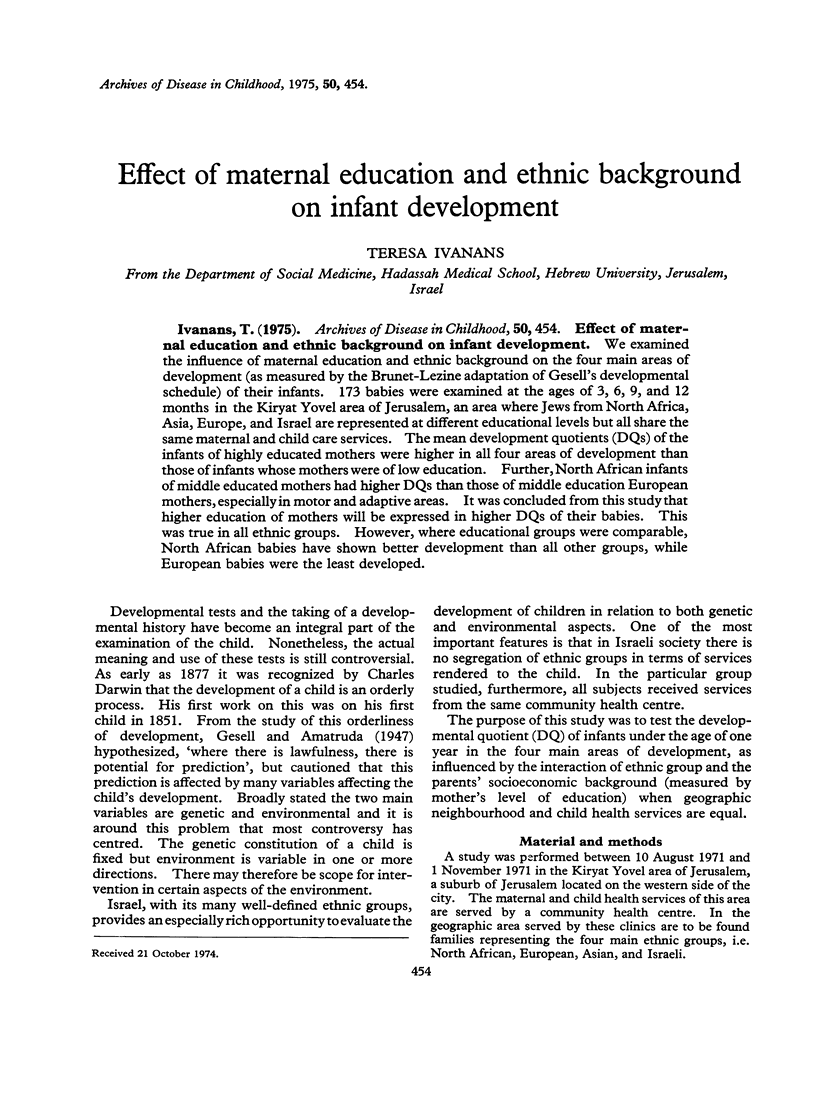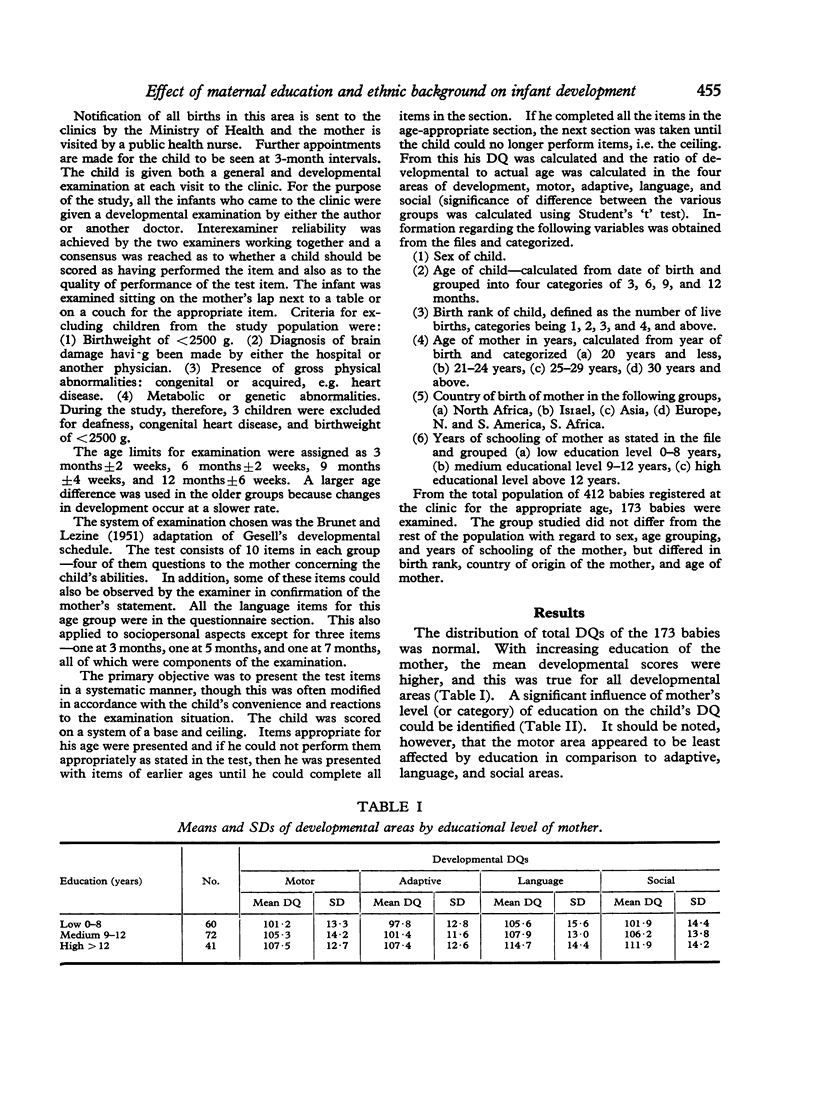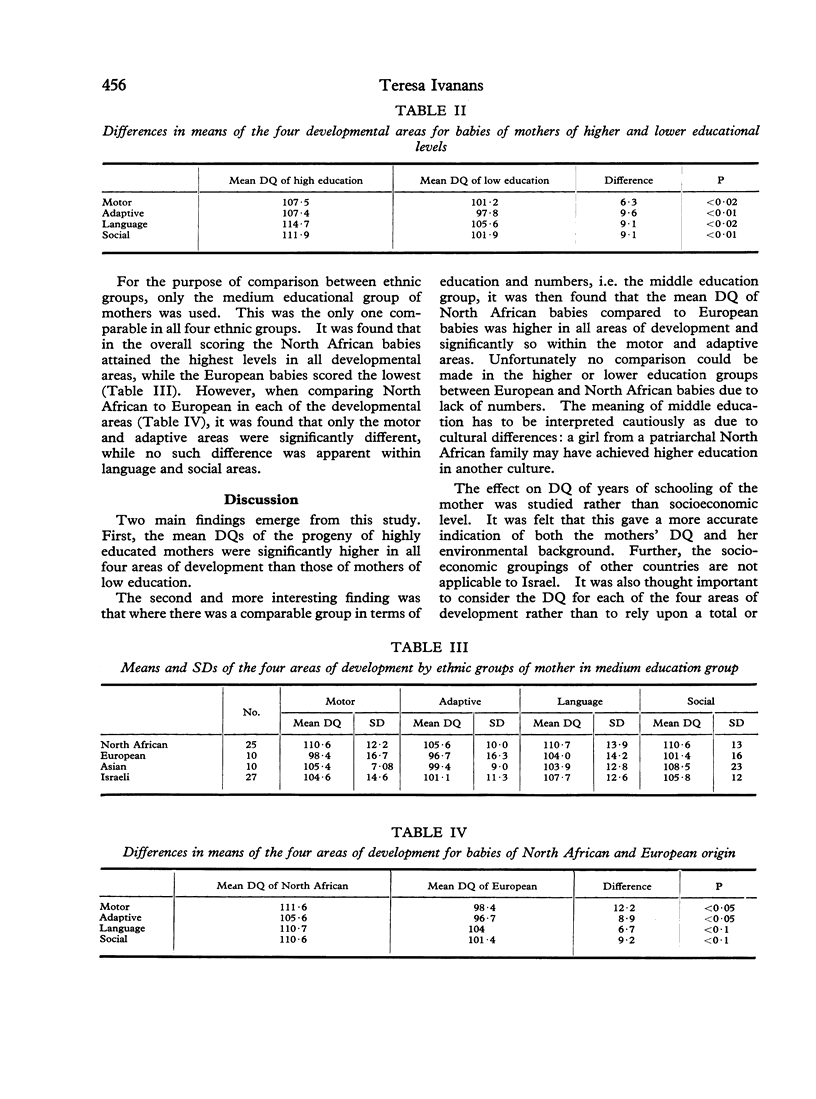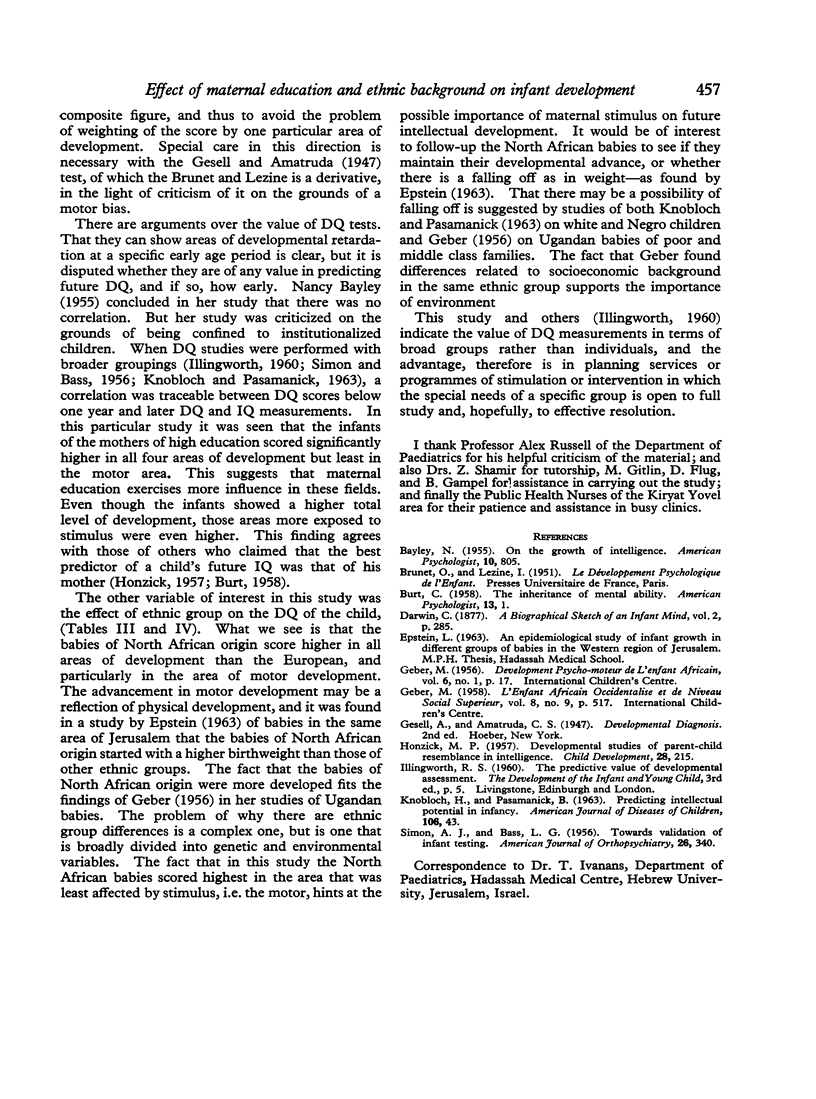Abstract
We examined the influence of maternal education and ethnic background on the four main areas of development (as measured by the Brunet-Lezine adaptation of Gesell's developmental schedule) of their infants. 173 babies were examined at the ages 0f 3, 6, 9, and 12 months in the Kiryat Yovel area of Jerusalem, an area where Jew from North Africa, Asia, Europe, and Israel are represented at different educational levels but all share the saem maternal and child care services. The mean development quotients (dqs) of the infants of highly educated mothers were higher in all four areas of development that those of infants whose motherw were of low education. Further, North African infants of middle educated mothers had higher DQs than those of middle education European mothers, especially in motor and adaptive areas. It was concluded from this study that higher education of mothers will be expressed in higher DQs of their babies. This was true in all ethnic groups. However, where educational groups were comparable, North African babies have shown better development than all other groups, while European babies were the least developed.
Full text
PDF



Selected References
These references are in PubMed. This may not be the complete list of references from this article.
- GEBER M. L'enfant Africain occidentalisé et de niveau social supérieur en Uganda. Courrier. 1958 Oct;8(9):517–523. [PubMed] [Google Scholar]
- HONZIK M. P. Developmental studies of parent-child resemblance in intelligence. Child Dev. 1957 Jun;28(2):215–228. doi: 10.1111/j.1467-8624.1957.tb05977.x. [DOI] [PubMed] [Google Scholar]
- SIMON A. J., BASS L. G. Toward a validation of infant testing. Am J Orthopsychiatry. 1956 Apr;26(2):340–350. doi: 10.1111/j.1939-0025.1956.tb06182.x. [DOI] [PubMed] [Google Scholar]



